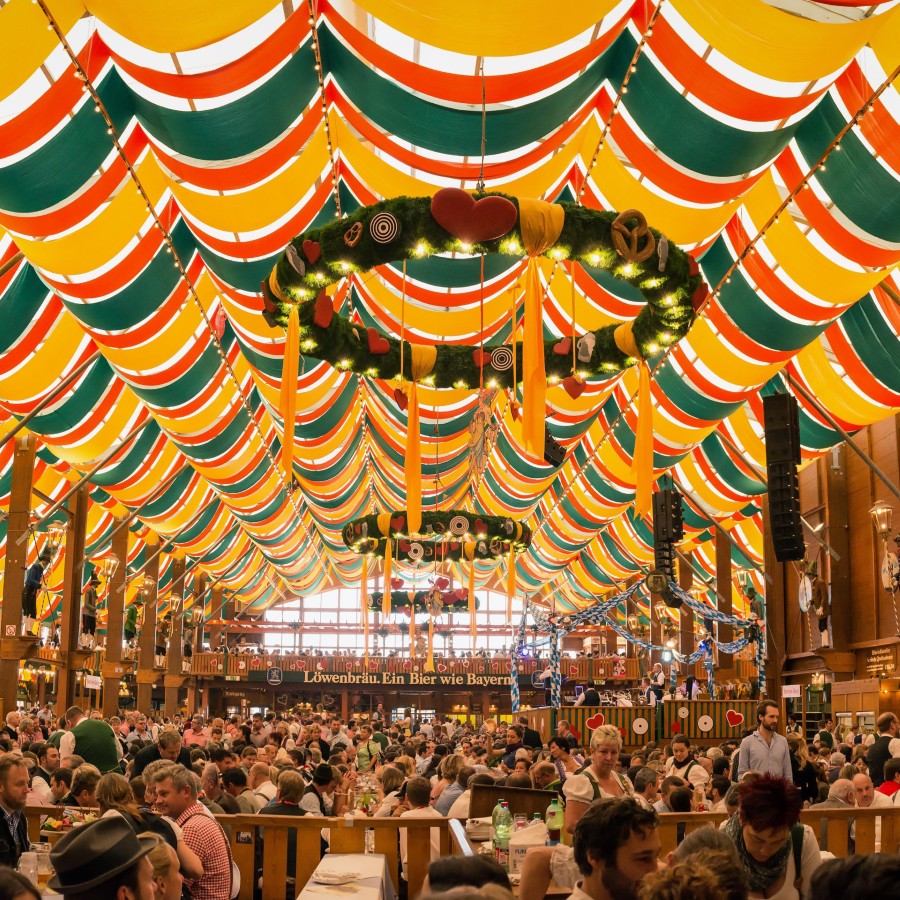Published:
Oktoberfest is an annual festival in Munich, Germany, consisting of traditional Bavarian music, parades, wagons, carnival rides, food, and drinks. It originated over 210 years ago and was inspired by the celebration of Princess Therese von Sachsen-Hildburghausen's marriage to the Crown Prince of Bavaria, who later became King Louis I. Since then, it has only been canceled 24 times due to political climates during wars.
Contrary to the name, Oktoberfest occurs primarily in September. The exact dates of the festival vary slightly every year; however, every year, the festival lasts three weeks, ending on the first Sunday of October unless that day falls before October 3, in which case the celebration is extended to incorporate German Unity Day. This year, the festival runs from Saturday, September 21 through Sunday, October 6.
While this event is only for three weeks out of the year, it still brings in a drastic amount of revenue. In 2023, over 1.25 billion Euros were generated from food, drinks, rides, etc., offered at the festival. Additionally, Oktoberfest is great for the Tourism industry. This year, there were nearly 50,000 attendees, 28% of which commuted from outside Bavaria, and 15% went as far as traveling from other countries, including the United States. Building off this, many foreigners wear traditional Bavarian clothes from local shops, typically costing 150-250 American dollars. In 2023, Oktoberfest visitors spent over 505 million Euros on travel accommodations. Additionally, because of the large scale of the festival, it generates 12,000 -13,000 jobs, further supporting Munich’s internal economy.
Specifically, the sale of beverages is one of the most significant revenue drivers. This year, over 7 million liters of beer were sold at 13.6-15.3 Euros per liter. Only six breweries local to Munich are permitted to sell beer at the festival, and each brewery gets a designated tent. Additionally, each beer sold must be “pure”-consisting of only water, barley, hops, yeast, wheat malt, and cane sugar. The breweries at the festival are referred to as the “Big Six,” including Augustiner, Hacker-Pschor, Löwenbräu, Paulaner, Spaten, and Hofbräuhaus. Most of these breweries have been brewing for centuries and are staples across Germany. Non-alcoholic beer has grown in popularity. The sale of non-alcoholic beverages increased by 50% from 2022 to 2023, and this year, all but 2 of the 18 large tents offered non-alcoholic beverages for the same price as alcoholic beverages. This shift is most likely in response to the overall trend in Germany toward decreased alcohol consumption over the past decade.
Oktoberfest festivities aren’t limited to Germany alone; many other countries celebrate with a festival of their own, highlighting German cuisine, beverages, music, and dress. The majority of these alternative celebrations last three days, either in September or October; however, some last as long as 23 days, such as in Hong Kong. Some other notable celebrations outside of Germany are hosted in Ontario, Canada; Vancouver, Canada; Denver, Colorado; Frankenmuth, Michigan; Cincinnati, Ohio; London, England; and Santa Catarina, Brazil. One common option for sourcing beer for the festival in the U.S. is Hofbräuhaus, as they have six beer halls established in the U.S. Other countries import authentic beer from Germany; Hong Kong imports Löwenbräu, which has been served at the Munich celebration since 1811. While Oktoberfest Primarily supports German-based breweries, many non-Germanl beer brands jump at the opportunity to increase their sales through marketing Oktoberfest-inspired flavors.
In conclusion, Oktoberfest is not just a celebration of Bavarian culture; it has evolved into a global phenomenon that significantly boosts local economies and promotes cultural exchange. With millions of attendees and extensive international participation, the festival continues to thrive, adapting to changing trends while remaining rooted in its rich history.
File under






